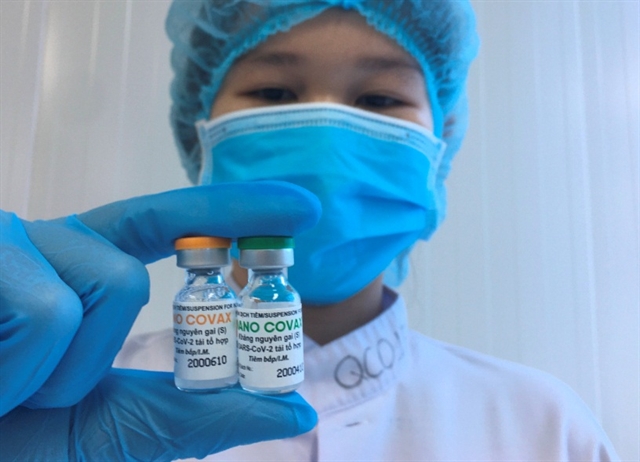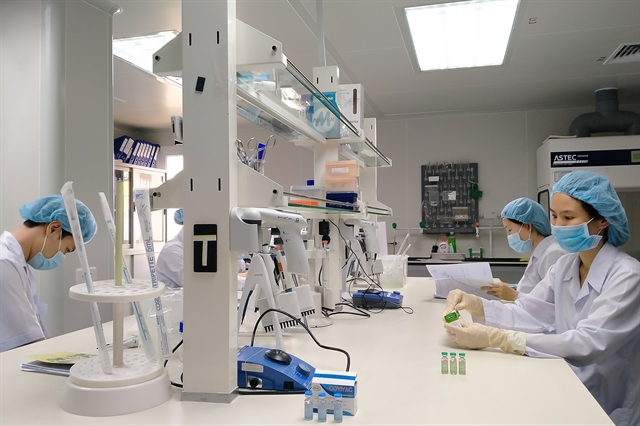 Society
Society

 |
| Research and production of vaccines at the Institute of Vaccines and Medical Biologicals in the southern central province of Khánh Hòa. — VNA/VNS Photo Thanh Vân |
HÀ NỘI — Việt Nam has achieved numerous accomplishments in scientific research and technology application in the production of vaccines, pharmaceuticals and medicinal herbs, Deputy Minister of Health Nguyễn Thị Liên Hương has announced.
Some diagnostic and treatment methods have yielded results equivalent to those of advanced countries worldwide and have been recognised by the international scientific community, she said
Hương added: "Việt Nam has researched and produced ten out of 11 types of vaccines used in the expanded immunisation programme. We have acquired and mastered some technologies for producing essential protein and enzyme-based medicines.
"In addition, Việt Nam has discovered and applied biologically relevant markers for cancer and genetic diseases. Việt Nam has also achieved some results related to the application of cell technology in the conservation and development of rare medicinal resources.
"These scientific research and technological development results have significantly contributed to healthcare and protected people's health."
Hương highly valued the effective support from the Ministry of Science and Technology and the active coordination of ministries, committees and sectors to achieve these results.
However, she cited limitations such as the research and development of medical science and technology only concentrating in major fields and failing to truly match the potential and capabilities and the dissemination and transfer of technology to lower levels remaining ineffective.
In addition, research activities have remained limited due to inadequate, inconsistent and insufficient investment in research equipment. There is a lack of human resources in terms of experts and strong research groups, she added.
Hương also stated that researches on predicting and measuring the capabilities and trends of emerging infectious diseases and recurrent diseases have not been adequately focused on. In particular, few studies produce economically valuable products with competitive market capabilities.
She said there are various reasons for existing challenges. Mechanisms, policies and investments in science and technology are still limited. There is a shortage of mechanisms for risky and adventurous research. The Law on Science and Technology and specialised laws are still inconsistent, making it difficult to produce final products to serve society.
To further enhance scientific and technological work in the healthcare sector, the Deputy Minister said it is necessary to amend the Law on Science and Technology in the healthcare sector to ensure consistency and coherence with specialised laws such as the Pharmaceutical Law and Medical Examination and Treatment Law.
She suggested guiding the implementation of the science and technology plan for the healthcare sector for the 2024-25 period to ensure compliance, effectiveness, feasibility and timeliness.
Dr. Nguyễn Ngô Quang, deputy director of the ministry’s Administration of Science, Technology and Training, emphasised the need to focus on refining the system of legal documents, innovating management activities, implementing scientific and technological tasks at the ministerial level in a transparent and simplified way.
He also suggested enhancing digital transformation in management, innovating financial management of science and technology, and addressing difficulties in transferring assets formed in scientific and technological tasks at the ministerial level.
Quang said it is necessary to build a system of innovation in the healthcare sector, with a focus on developing an ecosystem of innovation closely linked with value chains; and create favourable policies to promote collaboration between enterprises, research institutes, universities, and organisations in this field. — VNS




